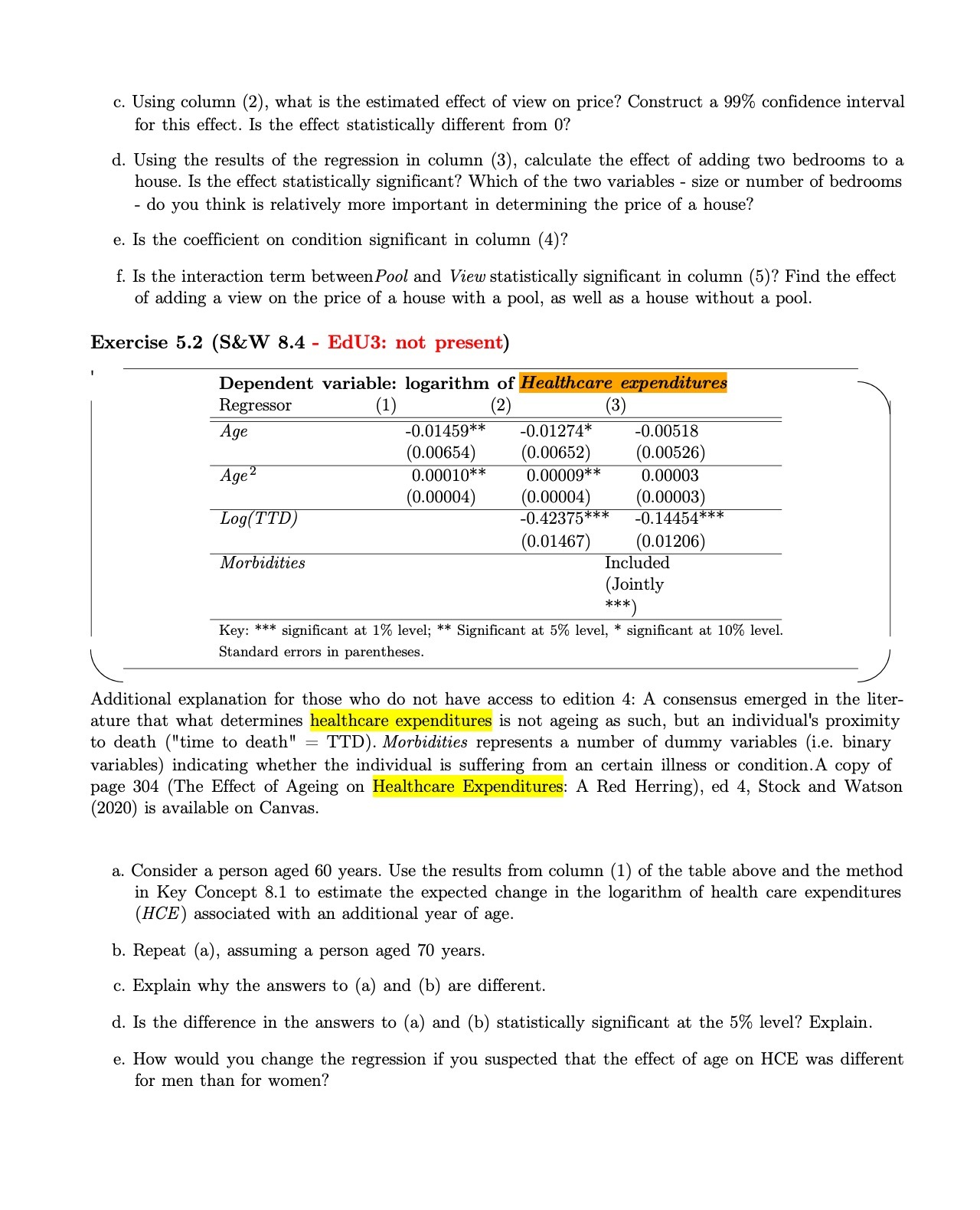c. Using column (2), what is the estimated effect of view on price? Construct a 99% condence interval for this effect. Is the effect statistically different from 0? d. Using the results of the regression in column (3), calculate the effect of adding two bedrooms to a house. Is the effect statistically signicant? Which of the two variables - size or number of bedrooms - do you think is relatively more important in determining the price of a house? e. Is the coefcient on condition signicant in column (4)? f. Is the interaction term betweenPool and View statistically signicant in column (5)? Find the effect of adding a view on the price of a house with a pool, as well as a house without a pool. Exercise 5.2 (386W 8.4 - EdU3: not present) Age 0.01459** 0.01274* 0.00518 (0.00554) (0.00552) (0.00525) A982 0.00010** 0.00009** 0.00003 (0.00004) (0.00004) (0.00003) L09(TTD) 0.42375*** 0.l4454*** (0.01457) (0.01205) Morbidtes Included (Jointly ***) Key: *** signicant at 1% level; ** Signicant at 5% level, * signicant at 10% level. K Standard errors in parentheses. / Additional explanation for those who do not have access to edition 4: A consensus emerged in the liter- ature that what determines healthcare expenditures is not ageing as such, but an individual's proximity to death ("time to death" = TTD). Morbidities represents a number of dummy variables (i.e. binary variables) indicating whether the individual is suHering from an certain illness or condition.A copy of page 304 (The Effect of Ageing on Healthcare Expenditures: A Red Herring), ed 4, Stock and Watson (2020) is available on Canvas. a. Consider a person aged 60 years. Use the results from column (1) of the table above and the method in Key Concept 8.1 to estimate the expected change in the logarithm of health care expenditures (HOE) associated with an additional year of age. b. Repeat (a), assuming a person aged 70 years. c. Explain why the answers to (a) and (b) are different. d. Is the difference in the answers to (a) and (b) statistically signicant at the 5% level? Explain. e. How would you change the regression if you suspected that the effect of age on HCE was different for men than for women







